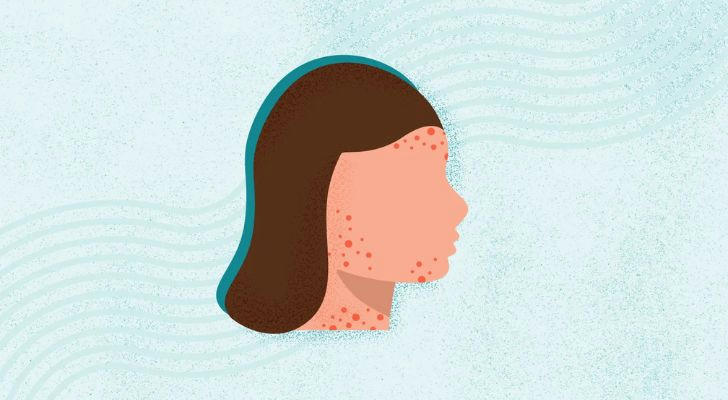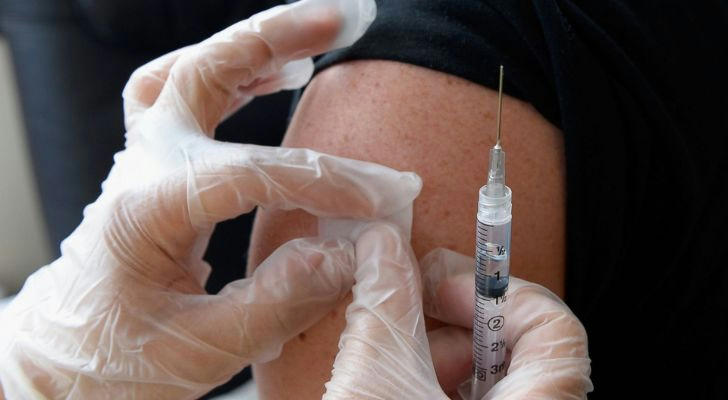💉 Measles Resurgence: Why Middle-Aged Women Should Reassess Their Immunity
In the age of advanced medicine and global connectivity, some diseases were thought to be part of history. But in early 2025, the United States reported a sharp spike in measles cases — a disease once declared eliminated in the country back in 2000. Among the most quietly vulnerable to this resurgence are middle-aged women, especially those born between the 1960s and early 1980s. While the headlines often focus on children, it's time to spotlight the forgotten risk group.

📈 The Numbers Don’t Lie
According to the Centers for Disease Control and Prevention (CDC), over 900 confirmed cases of measles were reported in the first quarter of 2025 alone — a 200% increase compared to the same period in 2024. Alarmingly, a large cluster of infections was found in adults aged 40–59, many of whom believed they were protected. But immunity may not be as solid as once thought.
🧬 Immunity Gaps: The Hidden Risk
There are two key reasons why middle-aged women may be at risk:
1️⃣ Vaccination Uncertainty
Before 1989, only one dose of the MMR (measles, mumps, rubella) vaccine was commonly given. However, it's now known that a single dose isn't always enough. Two doses provide around 97% protection, while one dose offers only about 93%. For women born before 1963, there’s a chance they were never vaccinated at all and may have been exposed only through natural infection — or not at all.
2️⃣ Waning Immunity
Even among those vaccinated, studies suggest that vaccine-induced immunity can fade over decades. Factors like age, underlying conditions, and immune system changes (especially post-menopause) can lower the body’s defense mechanisms.

🎭 Why This Matters Now
Measles is not just a rash and a fever. It's highly contagious — more than COVID-19 — and can lead to complications such as pneumonia, hearing loss, and brain swelling. For women who are caregivers, teachers, or frequently in contact with children or public places, the risk multiplies.
And let’s not forget popular culture’s influence. In early 2025, the TV series “Outbreak City” brought the reality of vaccine-preventable diseases back into mainstream attention. A character — a school nurse — contracts measles despite thinking she was protected, sending ripples across the show's fictional town. The scenario felt uncomfortably real, reflecting the current wave of measles spreading in real communities like Phoenix, Atlanta, and parts of California.
🔍 Should You Get Tested or Re-Vaccinated?
For women unsure about their vaccination history, the CDC recommends checking immunization records. But if records are unavailable — as is often the case — a blood test (titer test) can measure immunity levels. The good news? If immunity is low or uncertain, getting an MMR booster is safe, even for those previously vaccinated.
Medical experts emphasize: there’s no harm in revaccination, but there is a risk in assuming immunity.

👩👧👦 Women as Protectors of Families
Middle-aged women often play central roles in families — as mothers, grandmothers, aunts, and caregivers. Their immunity doesn’t just protect them — it shields babies too young to be vaccinated and immunocompromised relatives.
A 2023 study from the Journal of Adult Infectious Diseases found that 42% of middle-aged adults lacked sufficient measles immunity, often unknowingly. This silent vulnerability can contribute to community outbreaks, particularly in places like airports, schools, and daycare centers.
🐾 Surprising Connections: Pets & Public Spaces
While pets can’t catch measles, the rise in dog parks and pet-friendly cafes has created new spaces for social interaction — and viral exposure. That sneeze across the latte table? If it comes from someone infected, the measles virus can linger in the air for up to two hours.
The “dog mom” trend among middle-aged women brings joy and companionship, but also raises the need for awareness in such shared environments.

📌 Key Takeaways:
✅ Measles is back — and it’s not just a childhood illness.
✅ One dose may not be enough — especially for those born before 1989.
✅ Check your records or get a simple blood test to assess immunity.
✅ Re-vaccination is safe and recommended if immunity is uncertain.
✅ Middle-aged women have a unique responsibility — as caregivers and community anchors.
🎬 Final Thoughts
The return of measles serves as a reminder that health vigilance doesn’t end after childhood. Middle-aged women — often the silent pillars of families and workplaces — need to stay informed, proactive, and protected. Immunity isn't just personal; it's communal. And in a world where viruses travel faster than gossip, one simple shot could mean the difference between safety and serious illness.
🛡️ Stay protected. Stay informed. And when in doubt — check your immunity.
